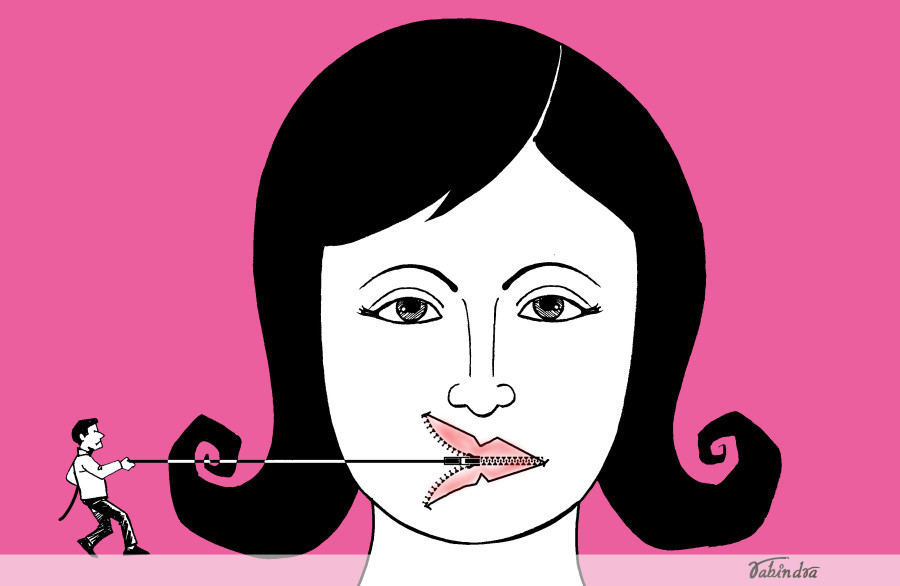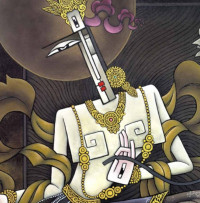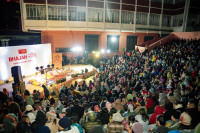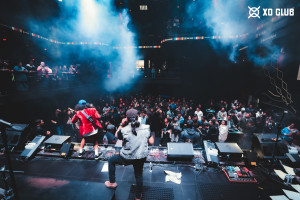Culture & Lifestyle
Harassment is pervasive in the film industry and anyone who speaks out is blacklisted
Numerous actors the Post spoke to have spoken of incidents where they were sexually or mentally harassed by people in positions of power.
Ankit Khadgi
It was 2015 and for more than a month, Samragyee RL Shah had been doing daily acting workshops for a film. On one specific day, one of the filmmakers came up to her after a workshop and proposed that she act out a romantic scene with him.
“I was taken back, as the actor who was cast opposite me was in another room,” recalled Shah, who was just 17 years old at that time while the man was in his late 50s. “But he [the filmmaker] came very close to me and attempted to kiss me.”
Shah says she shouted and told him to behave himself but he only laughed at her. This would be the first of numerous instances where this filmmaker misbehaved with her. Over the course of the film’s shooting, he would go on to mentally and physically harass her, she said.
One particular night, Shah recalled, she was asleep in her hotel room after a day of shooting when she felt a man’s hand on her body. She screamed and the man ran away.
The police were called, but they were unable to ascertain who had entered her room.
The next day, the filmmaker met her on the set and laughed off the incident, joking that she had almost been raped.
Shah described numerous instances to the Post, during the filming and afterwards, where this filmmaker would attempt to get very close to her and touch her inappropriately.
Last Friday, on June 26, Shah released a video on Instagram detailing many of these experiences. Although Shah did not name the perpetrator in her video, actor and producer Bhuwan KC, who produced the film Dreams starring Shah in 2016, took to social media to denigrate Shah and subsequently filed a complaint with the Film Artist Association of Nepal on Thursday alleging that he had been slandered.
Shah’s experiences are mirrored by many other women in the film industry. Numerous actors told the Post that emotional and sexual harassment is pervasive in the Nepali film industry, perpetuated by powerful well-established men who often resort to blackballing actors who refuse their advances or speak out in any way.
“Many people in our industry are aware that these kinds of people and behaviours exist but they just ignore it. Ignoring means supporting,” Shah told the Post. “I want people to know that it’s okay not to be okay with this kind of behaviour.”
An upcoming female actor, 25, who spoke on condition of anonymity, detailed a number of instances with a respected comic actor, whose identity she did not reveal, whose misbehavior has long been tolerated by others in the industry.
“In our very first meeting, he came to me and started caressing my hands, which made me uncomfortable. Later, he pulled me towards him and said that I looked sexy,” she said. According to the actor, all of this took place in front of the director and producer, both of whom brushed it off as a joke.
According to the actor, most people in the film industry are aware of this person’s tendencies and often intervene when he begins to take advantage of vulnerable women. However, no one has openly confronted him about his behaviour.
“I was told by the director at the very beginning of the film not to make a ‘scene’ if anything happened. He told me that it would affect the movie,” she said. “We had no choice as the actor was a big name and we had no clue how to deal with such issues.”
When the MeToo movement began to spread from the United States across the world, many in Nepal too had hoped that film industry insiders would begin to speak out about their own experiences with predatory powerful men like Hollywood producer Harvey Weinstein.
Although the global wave holding powerful people accountable for their misbehaviour reached India, with politicians and filmmakers accused of harassment, the movement never really took off in Nepal. Allegations against a few names in academia, politics and theatre surfaced, but less than a year later, those accused were back to work, seemingly unblemished by allegations of misconduct.
There have been a few voices from the film industry. Last year, actor Shilpa Pokhrel filed a complaint against her spouse, Chhabi Raj Ojha, who is also a film producer, of assault, intimidation, and torture. However the case was settled with both of the parties coming in a negotiation.
These voices have been few and far in between, possibly because the consequences of speaking out in Nepal’s small, close-knit film community, especially for women, can be far reaching.
According to actor and producer Reecha Sharma, people in power will do their best to silence anyone who attempts to speak out and blackballs them so that they are unable to get work. Sharma herself spoke out about the problematic representation of women in popular films in 2017, and was promptly criticised and bullied by her contemporaries.
“In our film industry, there are serious consequences for voicing our views, especially for female actors. Powerful people unite against those who exposed them,” said Sharma.
Although Sharma said she hadn’t faced physical harassment, she reported that there have been incidents that have made her uncomfortable.
“Under the impression of having a conversation, some producers would slowly start caressing my hands and back,” she said. “We have producers who invest in a film just so they can hang out with female actors. And since they’re financing the film, they feel like they have the authority to do anything.”
Many women actors believe that even if they do speak out, they will not receive support, either from industry insiders or from the public, and given past experience, they’re not wrong. After Shah released her video, she was lambasted by the public who rather questioned her character and passed misogynistic comments on her.
This is why, according to actor and producer Rekha Thapa, the Nepali film industry is riddled with such behaviour.
“When someone speaks against the system or shares about the harassment they were subjected to, no one extends any support. People are busy pointing fingers at the character of the victim, rather than questioning those people who’ve misused their power,” said Thapa. “How can we expect people to come out with their stories if our system fails to provide any kind of justice to them?”
Things, however, might be changing. Shah has received criticism and trolling for speaking but she has also received support from other celebrities and influencers like Barsha Siwakoti, Namrata Sapkota, Karma, Samriddhi Rai, and Najir Hussain.
“Power dynamics haven’t allowed actors to talk about the problems and harassment they face. But now it’s time to address these issues and take a stand,” said Shah. “My intention behind sharing my experiences was to serve as a wakeup call for our industry.”
Thapa too believes that more people need to speak out against the sexual and mental harassment that is pervasive in the industry.
“Female actors have always been treated as objects or eye pleasers,” said Thapa. “More women are now speaking out and society at large needs to support these voices.”




 21.12°C Kathmandu
21.12°C Kathmandu















